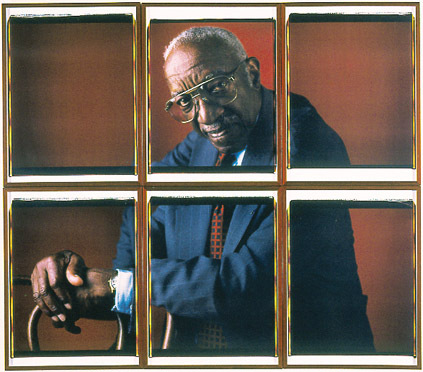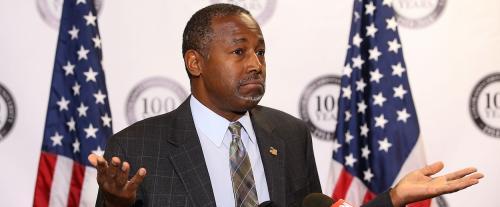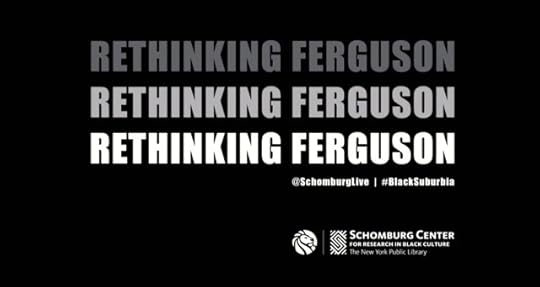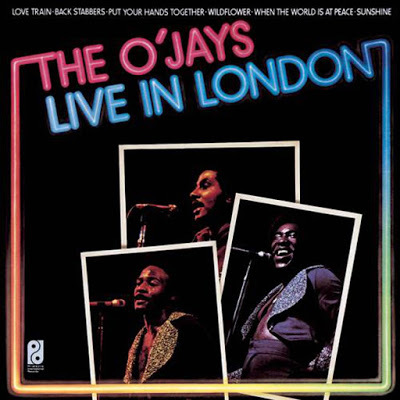Mark Anthony Neal's Blog, page 680
November 4, 2015
Did John Hope Franklin Want $100 Trillion in Reparations for Black Americans?
 Dawoud BeyDid John Hope Franklin Want $100 Trillion in Reparations for Black Americans?by Bakari Kitwana | @TheRealBakari | special to NewBlackMan (in Exile)
Dawoud BeyDid John Hope Franklin Want $100 Trillion in Reparations for Black Americans?by Bakari Kitwana | @TheRealBakari | special to NewBlackMan (in Exile)As Duke University concludes its celebration of the Centenary of late historian Dr. John Hope Franklin’s birth with a symposium on his work, journalist and activist Bakari Kitwana examines Dr. Franklin’s thoughts on Black Reparations.
***
Dr. John Hope Franklin, the wildly accomplished historian who documented Blacks' place in the great American story, firmly believed in reparations -- the idea that the descendants of slaves in the United States should be compensated for the centuries of free labor that enriched slaveowners and their descendants and the American empire. It was a fact that was largely overlooked in coverage of the late historians death in 2009 at the age of 94.
Consider Dr. Franklin’s response in 2007 to state legislators in North Carolina and Virginia who balked at apologies for slavery introduced by their peers. For him a mere verbal apology wasn't enough. "People are running around apologizing for slavery," he said. "What about that awful period since slavery -- Reconstruction, Jim Crow and all the rest? And what about the enormous wealth that was built up by black labor? I think that's little to pay for the gazillions that black people built up -- the wealth of this country -- with their labor, and now you're going to say I'm sorry I beat the hell out of you for all these years? That's not enough."
When Dr. Franklin spoke of history, he did so with the definitive authority of an expert who spent over half a century culling through the details. His accomplishments are legendary: distinguished Duke University professor who taught at the University of Chicago and Harvard University (where he earned his doctorate in 1941); author of 20 books; first African American to chair a history dept at a predominately white university; over 3.5 million copies of his book From Slavery to Freedom have been printed since it's 1947 publication.
It is very easy now in our age of political correctness to courteously applaud the accomplishments of a barrier breaking African American in the field of U.S. History, which he said he wrote without "the embellishment of emotional display." But an entirely different pill to swallow is the conclusion he gleaned from his analysis: reparations are essential to acknowledging the country's wrongs.
"There are all kinds of ways you could do it," Franklin said in a video interview at Duke University, in which he insisted he wasn't asking for reparations personally -- even though he was entitled. "What about scholarships? What about descent places for people to live? Out of the fortunes that were made, you could build a mansion for the descendant of every former slave."
Others have argued that reparations should be paid directly by the U.S. government, which Harpers magazine (November 2000) estimated at $100 trillion dollars for 222,505,049 hours of forced labor between 1619 and 1865 with compounded interest of 6 percent. Still others have argued that payments should come from corporations who benefited as well as former colonial governments.
The idea of reparations for Blacks has for years been met in the American mainstream with at best contempt and at worst ridicule. But for John Hope Franklin the essential truth of American history was found not just in the large sweeping narrative, but also in the subtleties of the racial divide lived everyday.
His careers as a historian and as an activist (he was a researcher for Thurgood Marshall for the Supreme Court Brown vs. Board of Education case and marched with Dr. Martin Luther King, Jr. in Selma) are well documented. Less known are his day-to-day confrontations with the legacy of white supremacy, subtleties he often related in personal anecdotes: As a 6 year-old boy, his father's business in Tulsa was destroyed (luckily his father survived) during the infamous 1921 race riot. As one of the first Black boy scouts in 1927, he was severely reprimanded midway through helping a blind white woman cross the street upon her discovery he was black. In 1995, while in DC to receive the Presidential Medal of Freedom, the nation's highest award for a civilian, he hosted a party for friends at the Cosmos Club where he was a member and was asked by a white woman to get her coat, even though uniform attendants were present.
Personal insults like these only scratch the surface of the economic and psychological setbacks he suffered, like countless other African Americans, at the hands of white supremacy ingrained in American culture. Insults like these were a reminder of the big picture reasons why descendant of enslaved Africans lagged behind in the present. For Dr. Franklin, this was a direct result of American slavery.
"They ought to develop some kind of modus operandi that they can do something else -- something to absolve themselves of three centuries of guilt from which they are the direct beneficiaries," he said in a 2007 interview. "How large is the black population now living in abject poverty in this country? How large is the population of blacks who have poor health? Sometimes they inherited the poor health right from their forebears who were beaten and treated like they were animals all over this country."
It is true, as opponents of reparations argue, that America's troublesome history of racial inequity was born in the past. But it is equally apparent, as John Hope Franklin insisted, that our future is defined by the ways we address its legacy in the present.
If we really seek to commemorate him, it seems to me that the best we can do is to not just pay lip service to the man. Instead we should honor him by paying homage in the form of meaningful national policy that considers the conclusion of his life work.
+++
Bakari Kitwana is the curator of the essay series "Change the Perception of Black Men by 2020," executive director of Rap Sessions and the author of the forthcoming Hip-Hop Activism in the Obama Era (Third World Press, 2015).
Published on November 04, 2015 16:06
Trailer: 'Chiraq' (dir. Spike Lee)
 First trailer for Spike Lee's Chiraq. The film will have a limited release on December 4th, and be available on Amazon Instant Video shortly thereafter.
First trailer for Spike Lee's Chiraq. The film will have a limited release on December 4th, and be available on Amazon Instant Video shortly thereafter.
Published on November 04, 2015 02:48
Lalah Hathaway Talks Parents Influence On Her Music + Singing With Kim Burrell
 '+MadameNoire caught up with Lalah Hathaway to get her thoughts on her Dad, Donny Hathaway's music and his influence on her sound; winning two grammys despite being perceived as an underrated artist.'
'+MadameNoire caught up with Lalah Hathaway to get her thoughts on her Dad, Donny Hathaway's music and his influence on her sound; winning two grammys despite being perceived as an underrated artist.'
Published on November 04, 2015 02:41
November 3, 2015
Intersection with Jamil Smith: The Loneliness of the Black Republican
 'The black Republican identity has completely transformed over the past 100 years. Will Ben Carson be able to woo black voters back to the GOP? Historian Leah Wright Rigueur, conservative TV anchor Amy Holmes, and journalists Mychal Denzel Smith and Darren Sands dive in.'
'The black Republican identity has completely transformed over the past 100 years. Will Ben Carson be able to woo black voters back to the GOP? Historian Leah Wright Rigueur, conservative TV anchor Amy Holmes, and journalists Mychal Denzel Smith and Darren Sands dive in.'
Published on November 03, 2015 18:11
Ebony Senior Editor Jamilah Lemieux on Juggling Work + Twitter + Being a Mom
 'Ebony's Senior Editor Jamilah Lemieux Talks With +The Root's Danielle Belton about her career, motherhood, Twitter, 70 years of Ebony Magazine and that recent, controversial Bill Cosby cover.'
'Ebony's Senior Editor Jamilah Lemieux Talks With +The Root's Danielle Belton about her career, motherhood, Twitter, 70 years of Ebony Magazine and that recent, controversial Bill Cosby cover.'
Published on November 03, 2015 16:37
Talks at the Schomburg: Rethinking Ferguson Through the Prism of Suburbia
 'Highlights from the +Schomburg Center's discussion with leading scholars, journalists and activists on the impact of geography on racial dynamics in America. Perceptions of "suburbia" have been challenged recently as suburbs such as Ferguson, Missouri, have become sites of major policing controversies that have resulted in community uprisings.'
'Highlights from the +Schomburg Center's discussion with leading scholars, journalists and activists on the impact of geography on racial dynamics in America. Perceptions of "suburbia" have been challenged recently as suburbs such as Ferguson, Missouri, have become sites of major policing controversies that have resulted in community uprisings.'
Published on November 03, 2015 16:27
#UnderTheCoverOfSoul--"Wild Flower": Skylark + The New Birth + The O’Jays
 #UnderTheCoverOfSoul--"Wild Flower": Skylark + The New Birth + The O’Jays by Mark Anthony Neal | @NewBlackMan | NewBlackMan (in Exile)
#UnderTheCoverOfSoul--"Wild Flower": Skylark + The New Birth + The O’Jays by Mark Anthony Neal | @NewBlackMan | NewBlackMan (in Exile)So Eddie Levert introduces The O’Jay’s rendition of “Wild Flower” from their 1974 album Live in London, as a song that the group initially thought was a “White guy, trying to do a Black thing.” Presumably Levert first heard The New Birth’s version of the song, which the group released on their 1973 album It’s Been a Long Time (with that classic title track), and could only assume, after hearing Skylark’s version, that it was the case of the Canadian band trying to “sound Black.” Give The New Birth credit for recognizing a great tune, from one of the great one-hit-wonders of the Soft Rock ‘70s. Of course, for this nascent musicophile, who spent many nights listening to New York City’s WABC in the early 1970s, the Skylark version was the only version I knew for a decade after it dropped, and thanks to a college classmate (who I had an unrequited crush on) for tipping me to The O’Jay’s version, which clocks in at over nine-minutes (of pure Philadelphia Chu’ch). It would be another decade before I heard The New Birth version--my vote for one most in underrated Soul and Funk bands of the 1970s--and for my money I’ll take The New Birth’s stankified version, though all three remain in regular rotation. Kanye and Paul Wall flipped Hank Crawford’s instrumental on “Drive Slow”--high praise perhaps, for a saxophonist who never met a Soul song he couldn't drop a little gravy on, and Jamie Foxx featured The New Birth version on “Unpredictable.”
Published on November 03, 2015 16:13
Under the Cover of Soul--"Wild Flower": Skylark + The New Birth + The O’Jays
 Under the Cover of Soul--"Wild Flower": Skylark + The New Birth + The O’Jays by Mark Anthony Neal | @NewBlackMan | NewBlackMan (in Exile)
Under the Cover of Soul--"Wild Flower": Skylark + The New Birth + The O’Jays by Mark Anthony Neal | @NewBlackMan | NewBlackMan (in Exile)So Eddie Levert introduces The O’Jay’s rendition of “Wild Flower” from their 1974 album Live in London, as a song that the group initially thought was a “White guy, trying to do a Black thing.” Presumably Levert first heard The New Birth’s version of the song, which the group released on their 1973 album It’s Been a Long Time (with that classic title track), and could only assume, after hearing Skylark’s version, that it was the case of the Canadian band trying to “sound Black.” Give The New Birth credit for recognizing a great tune, from one of the great one-hit-wonders of the Soft Rock ‘70s. Of course, for this nascent musicophile, who spent many nights listening to New York City’s WABC in the early 1970s, the Skylark version was the only version I knew for a decade after it dropped, and thanks to a college classmate (who I had an unrequited crush on) for tipping me to The O’Jay’s version, which clocks in at over nine-minutes (of pure Philadelphia Chu’ch). It would be another decade before I heard The New Birth version--my vote for one most in underrated Soul and Funk bands of the 1970s--and for my money I’ll take The New Birth’s stankified version, though all three remain in regular rotation. Kanye and Paul Wall flipped Hank Crawford’s instrumental on “Drive Slow”--high praise perhaps, for a saxophonist who never met a Soul song he couldn't drop a little gravy on, and Jamie Foxx featured The New Birth version on “Unpredictable.”
Published on November 03, 2015 16:13
November 2, 2015
Kehinde Wiley's Echoes of Masterworks
 "If you look at the paintings that I love in art history, these are the paintings where great, powerful men are being celebrated on the big walls of museums throughout the world," said Kehinde Wiley. "What feels really strange is not to be able to see a reflection of myself in that world."
"If you look at the paintings that I love in art history, these are the paintings where great, powerful men are being celebrated on the big walls of museums throughout the world," said Kehinde Wiley. "What feels really strange is not to be able to see a reflection of myself in that world."
Published on November 02, 2015 21:16
Not in the Recruiting Material: The University of Louisville Peddles Sexism & Racism
 Not in the Recruiting Material: The University of Louisville Peddles Sexism & Racismby David J. Leonard | @DrDavidJLeonard | NewBlackMan (in Exile)
Not in the Recruiting Material: The University of Louisville Peddles Sexism & Racismby David J. Leonard | @DrDavidJLeonard | NewBlackMan (in Exile)University of Louisville has officially become the capital of everything that is wrong with higher education in the United States.
Acknowledging my own hyperbole, especially given how injustice, racism, sexism, and exploitation are as commonplace as the registrar, administrative bloat, and assessment measures, the University of Louisville might want to change its mascot to the Perpetuaters of Injustice.
Recent events at the University of Louisville, involving both its basketball program and the Office of the President, embody the costs and consequence of a university culture that peddles faux diversity rather than actual justice; that is motivated by the logics of the market as opposed to education and is guided by principles focused on wins and donor ledgers by any means necessary.
ESPN’s Outside the Lines reported that the Cardinal basketball team enticed its recruits with sex-filled parties over a four-year period:
A book, Breaking Cardinal Rules: Basketball and the Escort Queen, published this month by self-described former escort Katina Powell, 42, details nearly two dozen stripping and sex parties from 2010 to 2014 inside Billy Minardi Hall, the on-campus dorm for athletes and other students named for Louisville men's basketball head coach Rick Pitino's late brother-in-law. Powell, who first spoke to Indianapolis Business Journal Book Publishing, has said that McGee arranged the parties and paid her $10,000 for supplying dancers during the time period.
Despite the shock and spectacle used by ESPN to sell this story (and elevate its place as the place of ‘sports news’), the practice of athletic programs using sex as part of recruitment is nothing new. Spike Lee documented this practice more than 15 years ago in He Got Game. HBO’s Real Sports documented this misogynistic practice more than years ago with an expose on the University of Oregon.
In 2013, Jessica Luther documented the ways that collegiate athletic programs use “hostess programs” as part of recruitment process and how this embodies/reflects a rape culture in a must read piece in The Atlantic.
In 2002, former members of the University of Oregon hostess program alleged that sex between recruits and the women in the program was not uncommon. Similar claims were made about the Arizona State hostess program the following year. The list goes on. Many of these allegations surfaced following the revelation of horrific events that took place at the University of Colorado. In 1997 and again in 2001, women said that they were raped at parties hosted for football recruits. The later instance involved both football players and high school recruits who, together, allegedly sexually assaulted three women.
Yet, it was business as usual from the NCAA, its university members, and its media partner, ESPN. Reflecting its priorities and values, it seems that NCAA has dished out more punishments for free tattoos, AAU coaches providing loans to their Just as "revelations that the University of Louisville basketball program may have paid a self-described 'Louisville Madam' to supply recruits with strippers and sex," is not an isolated incident, the recent photo of "President James Ramsey and his staff dress[ing] up in stereotypical ‘Mexican’ costumes" is reflective a campus climate polluted by both micro-aggressions and macro-nooses (Neal 2015).
From the daily confrontations with racism and sexism to the ubiquity of reported hate crimes and the racism that seems to be on loop within PWI party culture, to the normalized culture of inequity and violence resulting from the lack of diversity in students, curriculum, staff, faculty, and administration, colleges and universities are clearly not the bastions of progressive thought and action as so often said.
Enter exhibit A: President James Ramsey. He, along with 15 members of his staff, decided it would be a good idea to dress up and pose for a Halloween picture where each donned “a sombrero and a rainbow-striped poncho.” No wonder the Latino/a student population is around 3% (Roughly 2% of faculty is Latino/a). Look at the leadership and the diversity efforts that seem to revolve around Halloween and racism.
“The harm is contained in the action that bolsters and pushes along the representation of Mexicans, Hispanics, and Latinos/Latinas as inferior and worthy of being the butt of a joke, writes David S. Owen. “This does nothing but sustain the domination of whiteness as the valued and superior racialized identity, while all other racialized identities are devalued, marginalized, and represented as inferior.”
Describing the actions of the president as “racism,” Olivia Krauth, editor-in-chief in The Louisville Cardinal, denounced the president for his actions and its timing.
“As the president of a university, I would expect more. As the president of a university currently in the middle of a scandal in the national news, I would expect even more than that. I would expect discretion. I would expect thought and research into whether or not this is considered offensive. Frankly, I would expect more creativity in costume selection. But I guess my expectations are too high for Ramsey.”
This isn’t just about bad timing or President Ramsey not knowing how to do ‘damage control.’ It is about a culture and climate that produced these connected injustices. These are two symptoms of a larger systemic problem at universities throughout the nation.
Despite happening at the same university, and dominating the media landscape over the last month, few have connected these two “scandals.” And these incidents are scandals but symptoms of a toxic and unjust system. Olivia Pope cannot solve these issues. They are indicative of broader cultural and systemic issues at the university and society as a whole.
It is imperative that we connect these racist and sexist dots, to look at the connective and corrosive tissue. We need interconnected and intersectional discussions. For example, the culture of the Louisville basketball isn’t just about a culture of misogyny but its intersections with anti-Black racism and classism.
Given the history of white fears about Black male athletes and White women, there are many layers to the discussion. Given that one recruit noted, “I knew they weren't college girls. It was crazy. It was like I was in a strip club” one must begin to ask how and why did they know they weren’t college girls – because they were young Black women? What does that say about who is seen as a college student and who is seen as outsider?
These incidents reflect the hollowness of the ‘diversity initiatives,’ strategic plans, and a commitment to diversity. The University of Louisville cannot even seem to commit to its own diversity plan:
We commit ourselves to building an exemplary educational community that offers a nurturing and challenging intellectual climate, a respect for the spectrum of human diversity, and a genuine understanding of the many differences-including race, ethnicity, gender, gender identity, sexual orientation, age, socioeconomic status, disability, religion, national origin or military status-that enrich a vibrant metropolitan research university.
Talk is cheap even when tuition is not.
These incidents each reflect a culture that sees Blackness and Latinoness as an object of consumption, as a tool of success, as a joke, and a stereotype. Together, they reflects a culture of dehumanization, whereupon bodies of color are used to garner victories, to entice recruits, to elicit fun, and to otherwise work in the name of the institution that so often silences, disregards, and otherwise dismisses.
These incidents speak an ecosystem of racism and sexism; it reveals the culture of higher education (and society as a whole) where the lives and voices of Black women, students, faculty, staff, and those in community, where the lives and voices of the Latino/a community, are neither heard nor valued, that is unless they are serving the university and its economic agenda; similarly in reflects how diversity is promoted through costumes and brochures yet the voices and communities are pushed aside, erased, and disregarded.
We must development and deploy frameworks that examine how racism and sexism operate within neoliberal corporatist institutions of 'higher' mis-education. We must push conversations that speaks on the commodification of difference, the objectification of bodies of color, and the "economy of misogyny" and racism.
It’s bigger than Louisville. Yet it is not a coincidence that this university is peddling in both misogyny and racism, sowing the seeds of rape culture and white supremacist culture. It is our job to connect the dots.
+++
David J. Leonard is Professor in the Department of Critical Culture, Gender and Race Studies at Washington State University, Pullman. Leonard's latest books include After Artest: The NBA and the Assault on Blackness (SUNY Press), African Americans on Television: Race-ing for Ratings (Praeger Press) co-edited with Lisa Guerrero and Beyond Hate: White Power and Popular Culture with C. Richard King. He is currently working on a book Presumed Innocence: White Mass Shooters in the Era of Trayvon about gun violence in America. You can follow him on Twitter at @drdavidjleonard.
Published on November 02, 2015 19:59
Mark Anthony Neal's Blog
- Mark Anthony Neal's profile
- 30 followers
Mark Anthony Neal isn't a Goodreads Author
(yet),
but they
do have a blog,
so here are some recent posts imported from
their feed.



